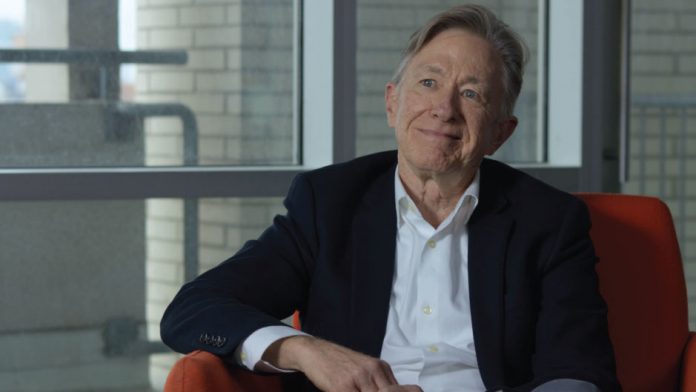Jeffrey Reitz is a professor in the Department of Sociology at the University of Toronto and the Director of Ethnic, Immigration and Pluralism Studies. We asked him everything from what is on his playlist to what advice he would give to young researchers in hopes of giving you a better understanding of what goes on outside the lab for one of the best minds in Canadian research.
What do you like most about your work?
What the social sciences can contribute, I think, is analytically strategic facts. I try to take an important public issue, and identify the key factual questions that I think would make a difference in public debate. I want to find a way to produce answers to those factual questions, and then the challenge is to introduce them in the discourse in a way which actually has an impact. In the social sciences this is a huge challenge, because so much of what people say is that they want to believe — quite apart from facts. And there is sometimes even a disregard for facts, both on the political left and the political right.
What do you envision in the future of your field?
I’d like to say we’re making progress, but I’m not sure. Sometimes it seems that the social sciences are either a wild free-for-all which can be interesting and provocative but where there is little discipline or continuity; or else constrained by a premature consensus where questions that don’t fit a received paradigm are not pursued. However, I do think if one looks at the leaders in most fields, they are really not operating in either mode, and interesting and fruitful developments are occurring. The challenge is to expand the influence of this group in defining what the outside world considers to be ‘social science’.
How will your research make a difference in people’s lives?
Two senses of this question of ‘so what?’. As I’ve mentioned in the [Orange Chair] interview, I think questions of immigration and diversity are among the defining issues of the current historical era, worldwide and nowhere more than in Toronto. One sense of the question of ‘so what’ is that I think my focus on facts has resonated with some persons who are members of minorities, and who are grateful to have an academic such as myself putting forward information reflective of their experiences, information that has some chance of being accepted as ‘true’ by the wider public. I’ve been told this many times. Another sense of the question of ‘so what?’ is whether the information actually has uses in public policy to improve our ability to address questions of diversity. I can’t point to much progress there, but I can hope.
What advice would you give to young researchers?
When you do your research, what’s most important is to choose the right problem. You have to remember that the research is going to take a while, so you can’t choose something that is of passing interest. Also, it is important to describe the problem in common-sense language, avoiding technical jargon. Jargon may be useful, but it can also function as a way of insulating a group of scholars from a wider engagement.
What do you consider your greatest achievement?
I don’t use the word ‘great’ next to anything I’ve done. What I’m most proud of is that early in my career, I realized I had not been trained to be an engaged scholar, and I think that over time I have rectified that problem and have produced some work that does have some wider significance.
What natural talent would you like to be gifted with?
I have a mathematical mind, so that’s useful. What’s missing for me is an ability to communicate easily with different groups of people. I find it challenging to get in ‘tune’ with groups that I don’t interact with everyday
What is on your playlist?
Almost everything. I like classics, blues, jazz, rock, pop. My main listening time is in the gym.
What do you like to do for fun?
Travel – get out there and see what’s happening. The defining events in my life have always involved travel. In my work, the most distinctive feature is cross-national comparison, and to do that you have to travel. My motto is you don’t know where you are until you’ve been everywhere else.









































